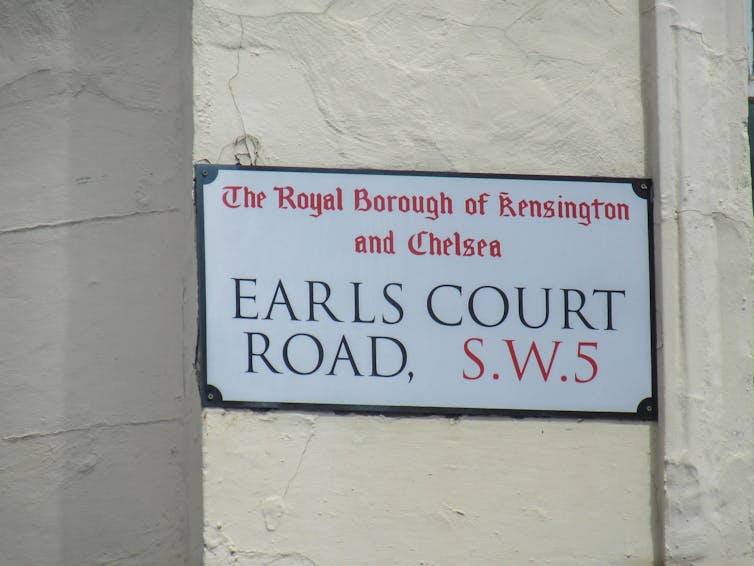All hail apostrophes - the heavy lifters who 'point a sentence in the right direction'
- Written by Roslyn Petelin, Course coordinator, The University of Queensland
Reports this week about the demise of the Apostrophe Protection Society may have been greatly exaggerated.
The Apostrophe Protection Society was set up in 2001 in the UK by retired journalist John Richards with the aim of “preserving the correct use of this currently much abused punctuation mark in all forms of text written in the English Language”.
When I read that Richards had capitulated to the “ignorance and laziness” of those who wrongly used apostrophes, I toyed with the idea of resurrecting the society in Australia.
There may be no need. A six-fold increase in traffic to the website after the story broke caused the society’s webmaster to close the site down. He has promised to return the archive in the new year. Its survival is important. The apostrophe isn’t all that tricky to get your head around - and doing away with it won’t make language simpler.
 Though many get it wrong, others’ contractions are so right.
Patrick Tomasso/Unsplash, CC BY
Though many get it wrong, others’ contractions are so right.
Patrick Tomasso/Unsplash, CC BY
Its - not it’s - big impact
British newspaper writer Harry Mount once wrote: “missing apostrophes is just ignorant and lazy”. He praised “the device that does so much with so little ink to point a sentence in the right direction”.
Richards’s desire to expel the intrusive greengrocer’s apostrophe (all those mango’s and tomato’s on special discount) mirrors that of Keith Waterhouse, the English columnist renowned as the author of classic comedy novel Billy Liar (1959) and Jeffrey Bernard is Unwell – a 1989 play about the musings of a London journalist and alcoholic who is locked overnight in The Coach & Horses Soho pub.
Waterhouse was the self-appointed life president of the (fictional) Association for the Annihilation (also Abolition) of the Aberrant Apostrophe and claimed to have an apostrophe incinerator in his back garden for superfluous apostrophes. His attendant goal was to redistribute ill-placed apostrophes to their rightful location.
Closer to home, the ABC’s Tiger Webb has previously dismissed the apostrophe. And I have responded with an argument for its preservation (with many fine examples).
We need apostrophes in the right places in examples such as this: “She’d wed him in a shed if we’d agree to it” when letters are left out. And for possession: the “ant’s pants” or the “ants’ pants” and likewise the “bee’s knees” or the “bees’ knees”.
Writers’ rules for writers
Driving along William Street in the Brisbane CBD in 1990, I was horrified to notice painters putting the finishing touches to the signage for the about-to-be-opened Queensland Writers’ Centre. It was without an apostrophe. A phone call to the committee soon corrected that oversight and the apostrophe was used for a while, though the battle was lost in later years.
It’s now known as the Queensland Writers Centre and it hosts the Brisbane Writers Festival each year.
The writers’ festivals held in Byron Bay, Canberra, Melbourne, Hobart, and Wollongong are also sans apostrophe. Their respective management committees must have reached an agreement that the word “writers” is used in a descriptive or affiliative sense rather than as a possessive adjective. Thank goodness the committees of the writers’ festivals held in Sydney, Adelaide, the Northern Territory, and the Outback held out.
Possession in place names has caused controversy in the UK and here.
The UK’s National Land and Property Gazetteer, which registers street names, doesn’t require apostrophes in new names, but the rule doesn’t apply to existing signs. Devon and Birmingham unilaterally disposed of the possessive in in all street and road signs in 2009, though the Devon council backtracked shortly after.
 In the UK, many places have done away with apostrophes on signs.
Shutterstock
In the UK, many places have done away with apostrophes on signs.
Shutterstock
South Australia has removed all apostrophes in place names. The policy of the NSW Geographic Names Board is to have no apostrophe in place names with a final “s”.
The Australian government’s Style Manual for Authors, Editors and Printers lists guidelines for other states and the Northern Territory. It’s worth noting the last printed edition of this manual was produced in 2002. A new digital guide to government-endorsed grammar has been promised. At the time it was announced, the digital manual’s product manager imagined a time when:
Clear written communication would be valued and personal preference wouldn’t be an option because there’d be one credible ‘source of truth’ that stated the rules and provided the evidence for why.
Statements like this bode well for its future, though “rules” about language aren’t always black or white. The guide is now in its Beta version and set for release in 2020.
Don’t get it twisted
Within the ranks of those who do subscribe to the possessive apostrophe, I can count on Richard Nordquist for his authoritative guidance and The Chicago Manual of Style for support.
Perhaps the most contentious apostrophe point is how to make singular words ending in “s” possessive. Is it “Dickens’ novels” or “Dickens’s novels”?
The Chicago Manual of Style advocates the extra “s” alternative in all cases, as do I. Even in cases such as “Descartes’s dicta” and “Euripides’s tragedies”.
Only use the contraction ‘it’s’ if it can be replaced by ‘it is’ or ‘it has’.It is heartening to read related news that, whether or not John Richards’s apostrophe work continues, he might consider a campaign to save the comma from a similar fate.
“The use of the comma is appalling,” he told the BBC. “When I read some newspaper websites they just don’t understand what it is used for.”
This man, a punctuation champion in his 90s, is indomitable.
Authors: Roslyn Petelin, Course coordinator, The University of Queensland




